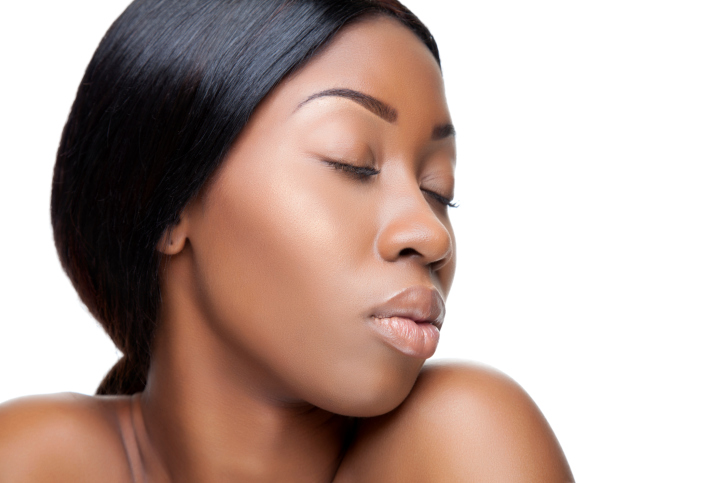 To select the best beauty treatments, you must weigh the options and make educated decisions. And some decisions need to be given more consideration than others. A prime example is how to treat dark spots and hyperpigmentation... or perhaps how not to treat these problems.
To select the best beauty treatments, you must weigh the options and make educated decisions. And some decisions need to be given more consideration than others. A prime example is how to treat dark spots and hyperpigmentation... or perhaps how not to treat these problems.
Through your own research or by recommendation, you will probably learn that an ingredient called hydroquinone is commonly used for skin lightening. Included in products made by popular companies such as Ambi, Black Opal and Palmers, hydroquinone is indeed effective. But, the more important question is whether or not it's safe.
Hydroquinone is an ingredient that is subject to controversy. Due to negative history and safety concerns, it is banned in cosmetic products in South Africa, Japan, Australia, Kenya and the entire European Union. In the United States, hydroquinone is available over-the-counter (OTC) in products that are primarily marketed to minorities.
The Concern
The FDA made its first decision on hydroquinone in 1982, deeming it GRASE (generally recognized as safe and effective). However, studies that followed began to raise red flags. There were concerns that the chemical may cause cancer and it was found that in some cases it does cause ochronosis.
Ochronosis is a condition that is characterized by skin that becomes thick and dark, often appearing to be blue. Yellow and greyish brown spots may also develop. The link between this condition and hydroquinone gained notoriety in South Africa before the ingredient was banned.
In Japan, a similar problem reportedly occurred. Japanese women used products containing hydroquinone and to their delight their skin lightened. Later, however, to their despair their skin darkened and their miracle ingredient was banned.
By 2006, the FDA wanted to change its position and issued a notice saying that the OTC products in the US were not considered GRASE and had been “misbranded.” The FDA asked that further studies be conducted, but to date, that request has not be answered with conclusive results and hydroquinone continues to be sold.
Use In The US
Research that existed prior to 2006 recommends that hydroquinone in topical products should not exceed 1%concentration and it should not be used in leave-on products.
In the US, OTC products with this ingredient can have a concentration of up to 2%. Prescription products commonly have concentrations of up to 4%. Hundreds of millions of units of these cosmetic products are sold to minorities and many of them are designed to be left on the skin.
Many in the medical community believe the concern about hydroquinone is unwarranted. They argue that the link between the chemical and cancer resulted from studies on rats, not humans. And, they point out that there are no known cases where anyone has developed cancer from hydroquinone.
Dr. Susan Taylor, co-founding director of the Skin of Color Center, is one of many who points out that the problems that developed in...
...South Africa resulted after long-term daily use, sometimes spanning for decades. Taylor referred to hydroquinone as “the gold standard for treating pigmentation disorders.”
Medical authorities, including Dr, Taylor, do not dispute that ochronosis has been found in the US, but those cases are considered rare.
A Personal Decision
As long as products are legally available in the US, whether you use hydroquinone and how you do so will be a personal decision. It is, however, one that you may want to consider making with the help of a dermatologist. That way, if you do decide to use hydroquinone, you will will have a professional to help you monitor any adverse effects to your skin. A medical consultation is especially important if you have liver or kidney disease or you use medicated skincare products, such as those containing benzoyl peroxide.
Hydroquinone users should also be aware of the fact that, since this product increases sensitivity to the sun, direct sunlight should be avoided and sunblock should be used. Also, depending on the type of products and the concentration of hydroquinone, you may experience mild side effects such as dryness, itching, and stinging. Long-term continual use is not recommended.
Lastly, in order to avoid skin irritation, remember to discard hydroquinone, or any other skin care product, if it becomes discolored, or turns shades of yellow or brown.








